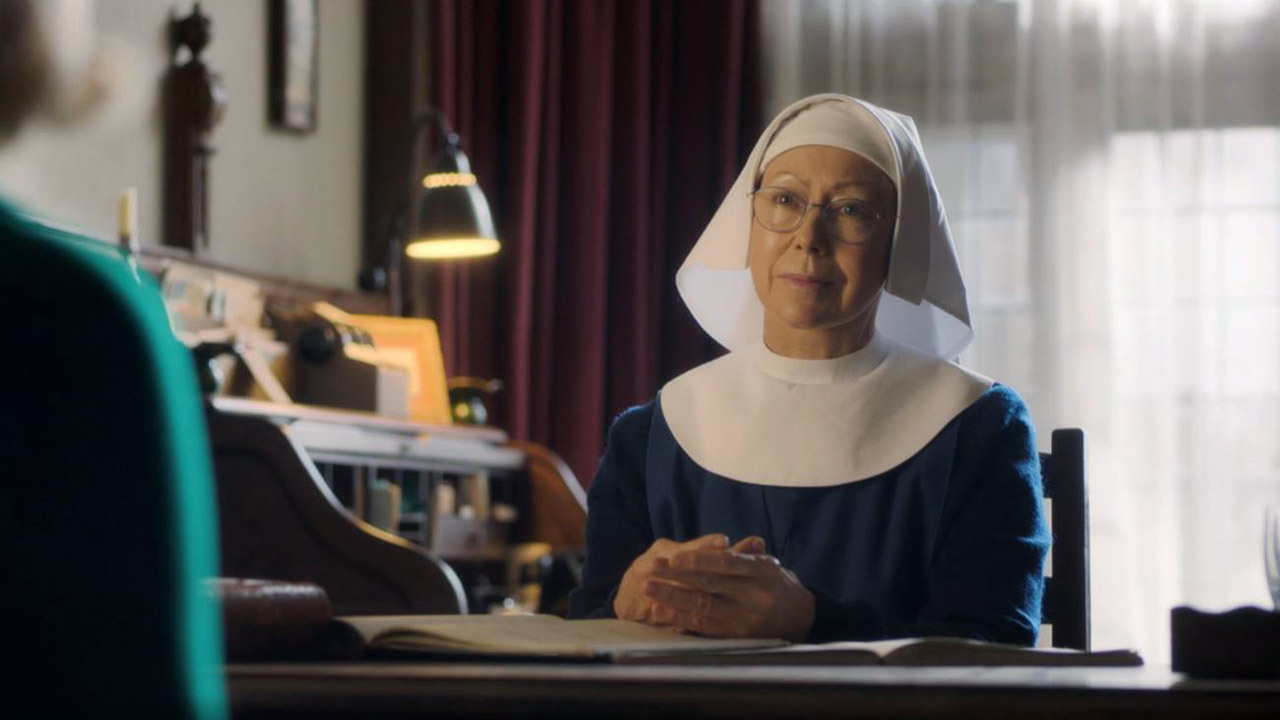
There is not much to envy in the dark recesses of Poplar’s dilapidated housing and the violent tendencies of unemployment and deep poverty. There is no desire to experience the horrific trauma inflicted by racist colonialism and faced by the painfully vulnerable Sarita Gupta. I certainly don’t envy any of the public health care challenges that were faced in 1966 or now. This is the sixth blog of my seven deadly sins and virtues themed series. The associated virtue to remedy the sin of envy is patience and admiration. It seems so many sins require the antidote of patience. The ubiquitous saying, “patience is a virtue,” is so poignantly true. The sin of envy is defined as the desire to possess what others have and is traditionally considered a form of resentment. Resentment risks the temptation to act and take away that which is desired from the one who has it. But teamed with admiration, as it is in this episode, it yields support.
For all the poverty, pain and strife within this episode, that is not where envy lays. It is the virtuous Sister Julianne who surprisingly and specifically speaks of her envy for young women like Beatrix (Trixie) Franklin. “Women who may not have a deep faith but have strong convictions that they are free to follow.” Despite that envy, Sister Julianne makes it clear that her faith will always come first.
What I love about the portrayal of Sister Julianne is that she shows how someone can be steadfast in her own path and still admire and even envy a different one. She is not threatened by Trixie’s opinions. Her admiration for Trixie’s commitment is revealed by her willingness to speak to Mother Mildred. The fact that Trixie went on to participate in the controversial radio broadcast is proof of the endorsement.
Perhaps some may find it unrealistic to think that a religious Sister would support what may be considered by some as pro-abortion activism. But she has also seen the injustice that Trixie has seen. She recognizes Trixie’s position as pro-woman and pro-family. She understands that Trixie can advocate for needed and compassionate social change in a way her own path cannot allow. Ending abortion requires social change and the difficult necessity of patience. Criminalizing the victims of injustice did not stop abortion in 1966 and will not stop it in 2021. It is as realistic a storyline as true life itself.
Before I became a midwife, I became mother to one perfect daughter. Although my husband and I had planned to expand our family, it was not to be. I suffered multiple spontaneous miscarriages. The technical medical term for such a condition was, at the time, habitual abortion. I always thought the term sounded so cruelly intentional.
As I grieved my decidedly unintentional pregnancy losses, I cared for young mothers and new babies in the poorest Detroit neighborhoods as a public health nurse. Although I envied my patients new motherhood, I did not resent it. I came to understand the challenges of mothering in their poverty and admired the courage it required. My privilege and my circumstance set me on a different path than those I envied. But I saw value in each path. Like Sister Julianne, my admiration for their conviction prompted me to want to help.
Although my own choice to carry a pregnancy was curtailed, rather than being resentful of other’s motherhood or even those who chose to terminate, I had renewed respect for the importance of choice. I eventually saw that not having the choice of more children of my own provided other choices. I chose to become a midwife so I could help others on their own maternal paths. I vowed to help women have more choices, not less.
Midwifery was not my first choice for a life path but it was the right choice for me under the circumstances. It ultimately healed my grief. As I have concluded in the previous explorations of the other traditional deadly sins, feeling envy or any designated sinful emotion can inform us. It can guide us in understanding what is valued and important to others and ourselves.
These past blog entries have been full of heavy topics, packed with profound diatribe. I suggested at the beginning of the season that this series would be exercise. I am getting weary of the weight lifting. I am still committed to finishing this run with the final deadly sin of greed. Since there will be no rest until the final essay on that profound subject, I pause for a moment of lightness. I confess a personal sin of envy. I divulge that I covet a certain gorgeous green pantsuit worn in this episode by Helen George while portraying an increasingly forward-looking Trixie Franklin (around 43 minutes in). I admire her style.
Get Another Take: Recommended Call the Midwife Recaps
From Thirteen.org | The British Tele Dish
From WTTW Chicago | The Playlist Blog
From NPT Nashville | The Vanderbilt University School of Nursing Recap
From WETA Washington | The Tele Visions Blog
From WGBH Boston | Watch Drama After Dark or Read the weekly recap